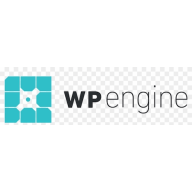Hostinger vs WP Engine: Which is better for your WordPress site?
- 01Hostinger vs WP Engine: overview
- 02What's the difference between Hostinger and WP Engine?
- 03Hostinger pros and cons
- 04WP Engine pros and cons
- 05Hostinger compared to WP Engine
- 06WP Engine compared to Hostinger
- 07Features comparison
- 08Hostinger vs WP Engine: Which is the best for your business?
- 09Promotions on Cloud Storage software
- 10Alternatives to Hostinger & WP Engine
Access up to $144 savings on Hostinger & $159 on WP Engine
Access up to $144 savings on Hostinger & $159 on WP Engine
Many website owners require robust web hosting services to support their online presence, including site performance, security, and scalability. Choosing the right hosting provider is crucial as it can affect everything from user experience to SEO rankings. Hostinger and WP Engine are two leading players in the web hosting industry, each with distinct offerings tailored to different needs.
To assist you in determining which hosting service best suits your requirements, we've conducted a thorough comparison of Hostinger and WP Engine. This analysis will cover key features, main differences, and pricing strategies to give you a clear picture of what each provider brings to the table. Let's delve into Hostinger vs WP Engine!
Hostinger vs WP Engine: overview
Hostinger and WP Engine are both prominent players in web development software, each offering unique features and strengths that cater to various user needs.
Hostinger is renowned for its affordability and user-friendly interface, making it an excellent choice for new website owners and small businesses. It stands out for its variety of hosting options, including shared, cloud, and VPS hosting, allowing users to scale their hosting resources as their site grows. On the other hand, WP Engine offers a premium managed WordPress hosting experience, specializing in providing high-performance solutions for WordPress sites. It's prized for its robust security features, excellent customer support, and server environments optimized specifically for WordPress, which can enhance site speed and reliability.
Now, let's dive deeper into the Hostinger vs. WP Engine comparison to help you make a well-informed decision when it comes to selecting the most fitting web hosting provider for your specific needs.
What's the difference between Hostinger and WP Engine?
Hostinger and WP Engine are two popular web hosting services that cater to different market segments with distinct hosting needs. Both providers are well-regarded, yet they differ significantly in their offerings and target audiences, making them suitable for different types of users and websites.
Hostinger is renowned for its affordability and versatility, making it an excellent choice for individuals, startups, and small businesses looking for cost-effective hosting solutions. It provides a range of hosting types, including shared, cloud, and VPS hosting, allowing users to choose or upgrade their services based on their growing needs. Hostinger's platform is user-friendly, with an easy-to-use control panel that appeals to beginners without previous web hosting experience. Furthermore, it offers competitive pricing with plans that often include free domains and SSL certificates, enhancing its appeal to budget-conscious users.
In contrast, WP Engine specializes in premium managed WordPress hosting, targeting professional bloggers, large businesses, and enterprises that require robust performance and expert support for their WordPress sites. WP Engine’s offerings are specifically optimized for WordPress, with features like automated WordPress updates, daily backups, and advanced security measures designed to ensure optimal site performance and resilience. The platform is ideal for users who need a high level of technical support and scalability, as well as those who prioritize website speed and reliability over cost.
The primary differences also extend to pricing structures. Hostinger offers more affordable plans that are suitable for users with limited budgets or those just starting out. WP Engine, on the other hand, has a higher price point but includes extensive WordPress-specific services and support, which can justify the cost for businesses that rely heavily on their online presence.
Choosing between Hostinger and WP Engine ultimately depends on your specific needs—whether cost efficiency and flexibility with Hostinger or specialized WordPress support and performance with WP Engine are your priorities.
Hostinger pros and cons
What are the advantages of Hostinger?
- Affordable pricing: Hostinger offers very competitive pricing, especially for shared hosting plans, making it accessible for individuals and small businesses on a budget.
- Performance: They provide good uptime guarantees and their servers generally perform well in terms of speed and reliability.
- User-friendly interface: Hostinger's control panel (hPanel) is intuitive and easy to navigate, making it suitable for beginners who may not have much technical expertise.
- Global reach: With data centers in multiple locations around the world, Hostinger offers good geographical coverage, which can improve website loading times for visitors from different regions.
- Customer support: They offer 24/7 customer support via live chat, which is responsive and helpful in resolving technical issues and answering queries.
What are the disadvantages of Hostinger?
- Upselling: Hostinger can be quite aggressive with upselling additional services, which may not always be necessary for your needs.
- Limited resources: While suitable for most small to medium-sized websites, Hostinger's cheaper plans may have limitations in terms of storage, bandwidth, and performance compared to higher-tier plans or competitors.
- Backups: Automated backups are only available with their higher-tier plans, which means you might need to handle backups manually or rely on third-party solutions with their basic plans.
- Migration fees: There may be additional costs involved if you want to migrate your website to Hostinger, depending on the complexity of the migration.
- Renewal rates: Like many hosting providers, the initial low prices advertised by Hostinger are often promotional rates for the first term only. Renewal rates can be significantly higher, which is something to consider when budgeting long-term.
Compare Hostinger to other tools
WP Engine pros and cons
What are the advantages of WP Engine?
- WordPress optimization: WP Engine is optimized specifically for WordPress, offering features like automatic updates, caching, and CDN integration that can significantly improve website performance.
- Security: They provide robust security features such as daily backups, malware scanning, and firewall protection, which are crucial for protecting WordPress websites from vulnerabilities.
- Scalability: WP Engine offers scalable hosting solutions that can handle traffic spikes and growth without compromising performance, making it suitable for growing websites and businesses.
- Expert support: They provide excellent customer support with WordPress experts available 24/7 via live chat and phone. Their support team is knowledgeable and can help with WordPress-specific issues.
- Developer-friendly tools: WP Engine includes developer-friendly tools such as staging environments, Git integration, and SSH access, which are useful for developers and agencies working on WordPress projects.
What are the disadvantages of WP Engine?
- Cost: WP Engine is more expensive compared to many shared hosting providers, which might be a deterrent for small businesses and individuals on a tight budget.
- Plugin restrictions: Due to their focus on security and performance, WP Engine may restrict certain plugins that are deemed to be resource-intensive or potentially insecure, which can limit customization options.
- Traffic overages: Depending on the plan, WP Engine may charge extra for exceeding the allocated monthly traffic limits, which could lead to unexpected costs if your website experiences high traffic.
- No email hosting: WP Engine does not provide email hosting as part of its services, so users will need to use a third-party email service like Google Workspace or Microsoft 365.
- Migration complexity: While WP Engine offers migration plugins and services, migrating a complex or large website to WP Engine may require additional time and effort compared to simpler hosting solutions.
Compare WP Engine to other tools
Hostinger compared to WP Engine
Hostinger and WP Engine cater to different hosting needs. Hostinger offers affordable shared hosting with global reach and user-friendly interfaces, ideal for individuals and small businesses.
However, it may lack advanced features and scalability found in WP Engine's managed WordPress hosting. WP Engine excels in WordPress optimization, robust security, and expert support, albeit at a higher cost. It provides developer-friendly tools and scalability for growing websites, but lacks email hosting and may restrict plugins.
Is Hostinger better than WP Engine?
Determining whether Hostinger is better than WP Engine largely depends on the user's specific requirements and budget constraints. Hostinger is attractive for its affordability and simplicity, making it a popular choice for beginners and small businesses that need a straightforward online presence without the frills.
On the other hand, WP Engine is tailored for WordPress users seeking optimized environments with enhanced security and performance capabilities, catering especially to medium to large-sized businesses and websites with complex needs.
What is Hostinger best used for?
Hostinger is best used for individuals and small businesses looking for affordable and reliable web hosting solutions. It's ideal for hosting personal blogs, portfolio websites, small e-commerce stores, and startup websites. Hostinger's user-friendly interface and competitive pricing make it accessible for beginners who may not have technical expertise.
With global data centers ensuring decent loading speeds worldwide, Hostinger offers adequate performance for most small to medium-sized websites. However, larger enterprises or websites requiring extensive scalability, advanced security features, or specialized hosting configurations may find other providers more suitable for their needs.
Can Hostinger replace WP Engine?
Hostinger, known for its affordability and user-friendly hosting, may not fully replace WP Engine for users needing robust WordPress-specific features. WP Engine excels in managed WordPress hosting with optimized performance, security, and expert support tailored to WordPress sites. Its scalability, developer tools, and advanced security measures set it apart but come at a higher cost.
Hostinger, while suitable for basic WordPress hosting, lacks some of WP Engine's specialized features like automatic updates, staging environments, and strict plugin management.
Is Hostinger cheaper than WP Engine?
Hostinger is notably cheaper than WP Engine, offering budget-friendly shared hosting plans suitable for individuals and small businesses. Their competitive pricing makes Hostinger accessible for those starting out or with limited budgets, providing decent performance and global reach.
In contrast, WP Engine's managed WordPress hosting is priced higher due to its specialized features, including optimized performance, robust security, and expert WordPress support. While Hostinger’s pricing offers affordability and basic hosting features, WP Engine's higher cost reflects its focus on premium WordPress-specific services and advanced functionalities, making it suitable for larger websites and businesses with specific hosting needs.
Is there a better Cloud Storage software than Hostinger?
Determining if there is a "better" hosting provider than Hostinger depends on your specific website hosting requirements. Hostinger is known for its affordable pricing, user-friendly interface, and adequate performance for small to medium-sized websites.
However, alternatives to Hostinger like WP Engine, Cloudways, Webflow, Bluehost, and SiteGround may better suit certain users. Cloudways specializes in providing scalable cloud hosting solutions while Webflow is ideal for those who prioritize design and want a platform that combines hosting with powerful web design tools. Bluehost is well-suited for beginners due to its ease of use and strong integration with WordPress. Lastly, SiteGround offers reliable hosting with excellent customer support and advanced features like free CDN and daily backups.
Additional 10% off on all 12/24/48-monthly plan purchases on Hostinger
Get Additional 10% off on all 12/24/48-monthly plan purchases on Hostinger and up to $144 savings with Secret.
WP Engine compared to Hostinger
WP Engine and Hostinger cater to different hosting needs. WP Engine specializes in managed WordPress hosting, offering optimized performance, robust security, and expert support tailored specifically for WordPress sites. It excels with features like automatic updates, staging environments, and advanced caching options, albeit at a higher cost.
Hostinger, on the other hand, provides affordable shared hosting with global reach and user-friendly interfaces, ideal for individuals and small businesses. It lacks some of the advanced WordPress-specific features but offers competitive pricing and decent performance.
Is WP Engine better than Hostinger?
Deciding whether WP Engine is better than Hostinger depends heavily on the specific needs and priorities of the website owner. For users whose primary focus is on maximizing WordPress functionality, WP Engine stands out as the superior choice due to its comprehensive suite of WordPress-specific tools and services that ensure optimal performance and security. This makes it particularly appealing for businesses or professional bloggers who require a robust platform capable of handling high traffic and complex operations.
In contrast, Hostinger may appeal more to those on a tighter budget or with simpler site requirements, where cost-effectiveness and basic functionality are paramount.
What is WP Engine best used for?
WP Engine is best used for websites that rely heavily on WordPress, such as business websites, e-commerce stores, and high-traffic blogs. It excels in managed WordPress hosting, offering optimized performance, robust security measures, and expert support specifically tailored to WordPress sites. WP Engine's features like automatic updates, caching, and staging environments ensure smooth operation and scalability for growing websites.
It is particularly suitable for businesses and developers looking for a reliable platform with advanced WordPress-specific tools and capabilities. However, its higher pricing may be a consideration for smaller websites or those with more basic hosting needs.
Can WP Engine replace Hostinger?
WP Engine, with its specialized managed WordPress hosting, may not directly replace Hostinger for all users. WP Engine excels in providing optimized performance, robust security, and expert support tailored specifically for WordPress sites, making it ideal for businesses and high-traffic websites.
However, Hostinger offers affordable shared hosting with global reach and user-friendly interfaces, suitable for individuals and small businesses on a budget. While WP Engine provides advanced WordPress-specific features, Hostinger's competitive pricing and adequate performance may suffice for less complex websites.
Is WP Engine cheaper than Hostinger?
WP Engine is generally more expensive than Hostinger due to its specialized managed WordPress hosting services. WP Engine focuses on providing optimized performance, robust security features, and expert support specifically tailored for WordPress sites, which justify its higher cost. In contrast, Hostinger offers affordable shared hosting plans that cater to individuals and small businesses with budget constraints.
While WP Engine's higher pricing reflects its premium WordPress-specific services and advanced functionalities, Hostinger provides competitive pricing and decent performance for basic hosting needs.
Is there a better Website Builder software than WP Engine?
Determining if there is a superior hosting provider to WP Engine depends on your specific website hosting requirements. WP Engine is celebrated for its managed WordPress hosting, providing optimized performance and robust security, ideally suited for WordPress-centric sites.
However, alternatives to WP Engine like Hostinger, Rocket, Faaaster, Servebolt, and ChemiCloud offer distinct advantages. Rocket excels in managed WordPress hosting with high-speed performance and strong security features. Faaaster focuses on delivering high-performance hosting with advanced caching solutions for dynamic sites. Servebolt offers ultra-fast hosting with an emphasis on speed and scalability for demanding websites. ChemiCloud provides reliable hosting combined with excellent customer service and perks like free domain registration and daily backups.
3 months free on annual plans on WP Engine
Get 3 months free on annual plans on WP Engine and up to $159 savings with Secret.
Features comparison
Both Hostinger and WP Engine Offer Superb Site Speed Optimization for Enhanced User Engagement
Both Hostinger and WP Engine emphasize fast website loading speeds, crucial for user engagement and SEO performance. Hostinger leverages high-speed servers across its global data centers, optimizing site performance for visitors worldwide. For example, websites hosted on Hostinger typically benefit from reduced page load times, enhancing user experience and search engine visibility.
Similarly, WP Engine's robust hosting infrastructure ensures rapid loading speeds through advanced caching mechanisms and optimized server configurations. This commitment to speed ensures that websites hosted on both platforms deliver swift and responsive user experiences, making them equally strong choices for users prioritizing performance and site speed optimization.
WP Engine Excels Ahead of Hostinger in Providing Comprehensive Security Measures
WP Engine stands out with its comprehensive focus on security, offering advanced measures such as threat detection, data encryption, and firewall protection. For example, WP Engine's dedicated security team ensures continuous monitoring and immediate response to any potential threats or vulnerabilities, enhancing overall website security.
In contrast, while Hostinger also implements robust security protocols, including SSL certificates and regular backups, WP Engine's specialized security framework provides an extra layer of protection ideal for businesses and websites requiring stringent security measures. This focus on security makes WP Engine a preferred choice for users prioritizing comprehensive and proactive security solutions for their websites.
Hostinger Excels Ahead of WP Engine in Providing Comprehensive, Responsive Support
When comparing support, Hostinger stands out with its comprehensive 24/7 assistance across various channels. Users benefit from access to live chat, extensive knowledge bases, and helpful video tutorials, ensuring prompt resolution of queries and technical issues. For example, Hostinger's robust support infrastructure enables users to quickly resolve domain management or website configuration challenges at any hour.
In contrast, while WP Engine provides reliable support, Hostinger's accessibility and breadth of support options, including real-time assistance, elevate its overall customer service experience, making it a preferred choice for users seeking continuous and responsive support.
Hostinger Outshines WP Engine in User-Friendliness for Simplified Website Management
Hostinger leads in user-friendliness with its straightforward interface, tailored for easy navigation and understanding. Its intuitive layout simplifies website management, making tasks like domain management and file uploads accessible even to beginners. For example, setting up email accounts or installing WordPress plugins is streamlined and hassle-free on Hostinger's platform.
In contrast, WP Engine, though robust in features, can be perceived as less intuitive, potentially requiring more time to master its functionalities. Hostinger's emphasis on usability ensures that users can efficiently manage their websites without extensive technical expertise, fostering a smoother experience overall compared to WP Engine.
WP Engine Slightly Ahead of Hostinger in Integration Flexibility for WordPress Enhancements
When it comes to integration possibilities, both Hostinger and WP Engine offer robust support for connecting with third-party applications. WP Engine, however, edges slightly ahead with its extensive compatibility with a wide array of WordPress plugins and themes. For instance, users can seamlessly integrate e-commerce tools like WooCommerce for enhanced functionalities or security plugins for improved website protection. This flexibility empowers users to tailor their websites extensively to suit specific business needs.
While Hostinger also supports a good variety of integrations, its offerings may not match the comprehensive depth provided by WP Engine, particularly for users requiring specialized WordPress-centric enhancements.
WP Engine Excels Ahead of Hostinger with Automated WordPress Plugin Updates for Enhanced Security
WP Engine distinguishes itself with automated WordPress plugin updates, enhancing website security and mitigating potential vulnerabilities. For instance, critical plugins like security or performance enhancements are automatically updated without user intervention, ensuring continuous protection and optimal site performance.
In contrast, Hostinger offers robust capabilities for creating and managing websites but lacks automated plugin updates, requiring users to manually monitor and update plugins for security and functionality. This makes WP Engine a preferred choice for WordPress users seeking streamlined maintenance and proactive security measures, thereby minimizing the risk of plugin-related issues and enhancing overall website reliability.
Hostinger Excels Ahead of WP Engine in Website Creation Flexibility Across Various Types
Hostinger excels in versatility, offering the capability to create a wide range of websites including corporate sites, online stores, blogs, and personal pages within a single platform. For instance, users can easily deploy different types of websites using Hostinger's intuitive tools and templates, accommodating diverse business or personal needs efficiently. In contrast, WP Engine specializes in managed WordPress hosting, optimizing performance and security specifically for WordPress sites.
While WP Engine provides robust features tailored to WordPress, its focus on this platform may limit flexibility for users seeking to create websites outside of the WordPress ecosystem, making Hostinger a preferable choice for broader website creation flexibility.
Subscribe to our newsletters.
No FOMO here. Stay up-to-date on all the latest deals and news with our monthly newsletter straight to your inbox like 113,000+ entrepreneurs (+ Get 10% off on on our Premium Membership!)
Hostinger vs WP Engine: Which is the best for your business?
Hostinger is the best tool for you if:
- You're starting your first website and need an affordable, straightforward hosting solution with user-friendly tools and a simple setup process.
- Budget constraints are a priority and you're looking for competitive pricing without sacrificing essential hosting features like decent uptime and fast server speeds.
- You require multilingual support, as Hostinger offers customer service in multiple languages, making it accessible for a global user base.
- Scalability is not your immediate concern, and you need a reliable service for a small to medium-sized project or personal blog.
- You value a wide range of integrated services, including domain registration and email hosting, streamlining your website management under one roof.
WP Engine is the best tool for you if:
- Your focus is on WordPress-specific hosting that optimizes performance and security, with features like automatic plugin updates and daily backups tailored for WordPress sites.
- You require enterprise-grade solutions with strong emphasis on scalability, performance, and reliability, ensuring your website can grow without performance hitches.
- Advanced developer tools like staging environments, Git integration, and one-click restore points are essential for your workflow and website management.
- Premium customer support is a priority, as WP Engine offers expert WordPress-specific assistance, ensuring help is always available to solve complex issues.
- You value additional services like GeoTarget, which optimizes content delivery based on user location, enhancing the user experience on your site.
Alternatives to Hostinger & WP Engine
Promotions on Cloud Storage software
Start saving on the best SaaS with Secret.
Secret has already helped tens of thousands of startups save millions on the best SaaS like Hostinger, WP Engine & many more. Join Secret now to buy software the smart way.















